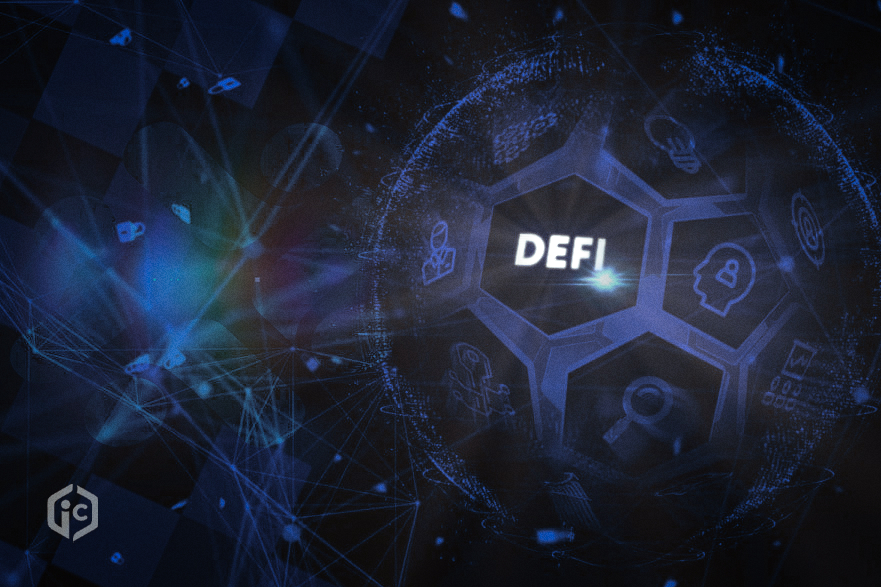
In a world where technology is evolving by leaps and bounds, decentralized finance (DeFi) has emerged as an innovative and promising way to redefine the financial landscape. In essence, DeFi represents a financial system built on blockchain and decentralized technologies that seek to eliminate intermediaries and empower individuals with greater control over their assets and transactions, being the heart of Folks Finance. This article will explore the foundation of DeFi, its key principles, and how it is transforming the financial industry.
The Basis of DeFi: Blockchain Technology and Smart Contracts
At the heart of DeFi is blockchain technology, a distributed, tamper-resistant data structure that provides transparency and security to financial transactions. The blockchain allows the recording of transactions in a transparent and secure manner, without the need for a centralized intermediary such as a bank or financial institution.
Additionally, smart contracts, which are self-executing computer programs designed to automate and enforce digital agreements, are essential for DeFi. These contracts are written in code and are automatically executed when certain predefined conditions are met, eliminating the need for intermediaries and reducing the costs and risks associated with traditional financial transactions.
Key Principles of DeFi
- Decentralization: In DeFi, there is no centralized authority that controls the system. Instead, transactions are carried out directly between peers through smart contracts on the blockchain, eliminating the need to rely on intermediaries.
- Transparency: All transactions on the blockchain are public and transparent, allowing anyone to verify the integrity and validity of the operations.
- Open Access: DeFi is designed to be accessible to anyone with an internet connection and a compatible device. There are no membership requirements, prior approval, or geographic barriers limiting participation.
- Interoperability: DeFi protocols are designed to be interoperable, meaning that users can interact and use a variety of financial services and applications seamlessly.
- User control: In DeFi, users have complete control over their assets. They do not need to trust third parties to store, transfer or invest their funds, giving them greater autonomy and security.
Transforming the Financial Industry
DeFi is rapidly transforming the financial industry in several significant ways:
- Lending and credit: DeFi platforms like Folks Finance allow users to lend and borrow, without the need for a traditional financial intermediary. This opens up new financing opportunities for individuals and businesses around the world.
- Decentralization: DeFi platforms like Folks Finance facilitate the direct exchange of digital assets, without the need for a centralized platform. This increases liquidity and reduces transaction costs.
- Staking and rewards: DeFi protocols offer staking opportunities, where users can lock their assets to support the security and operation of the network in exchange for rewards in the form of interest or tokens native to the protocol.
- Decentralized governance: Many DeFi projects adopt decentralized governance models, where users can participate in making decisions about the development and direction of the protocol through voting and proposals.
- Innovative financial products: DeFi is driving innovation in financial products, such as tokens, index funds, and decentralized insurance, offering new forms of investment and risk management.
Challenges and Considerations
Despite its rapid growth and adoption, DeFi faces several challenges and considerations, including security, scalability, and multi-chain interoperability; challenges that are being addressed by protocols like Folks Finance. Security remains a major concern as DeFi protocols and applications are subject to vulnerabilities and cyber attacks.
Additionally, scalability is a key challenge, as increased DeFi activity can lead to congestion on the blockchain network and higher transaction costs.
Conclusions
Decentralized finance (DeFi) is redefining the financial landscape by providing a more transparent, accessible and efficient system based on blockchain and smart contracts. With its key principles of decentralization, transparency, open access, interoperability and user control, DeFi is democratizing access to financial services and challenging the status quo of traditional finance. Although it faces challenges and considerations, DeFi’s potential to transform the financial industry is undeniable, and its impact will continue to be significant for years to come.
To learn more about Folks Finance and its DeFi products, visit its official website: https://folks.finance
Disclaimer:
This article does not contain financial advice or investment recommendations of any kind. The information provided is offered only for educational and didactic purposes regarding Web3 technology and analysis of its use cases.
Investing with cryptocurrencies, NFTs, tokens or other digital assets carry risks and are not regulated, so readers should do their own research before making any type of decision at their own risk, as well as adapt and observe the different legal regulations depending on their country of residence.
Aviso de responsabilidad:
Este artículo no contiene consejos financieros, ni recomendaciones de inversión de ningún tipo. La información brindada se ofrece sólo con fines educativos y didácticos en cuanto a tecnología Web3 y análisis sobre sus casos de uso.
Las inversiones con criptomonedas, NFTs, tokens u otros activos digitales conllevan riesgos y no se encuentran regulados, por lo que los lectores deben realizar su propia investigación antes de tomar cualquier tipo de decisión bajo su entera responsabilidad, así como adaptarse y observar las diferentes regulaciones legales según su país de residencia.
